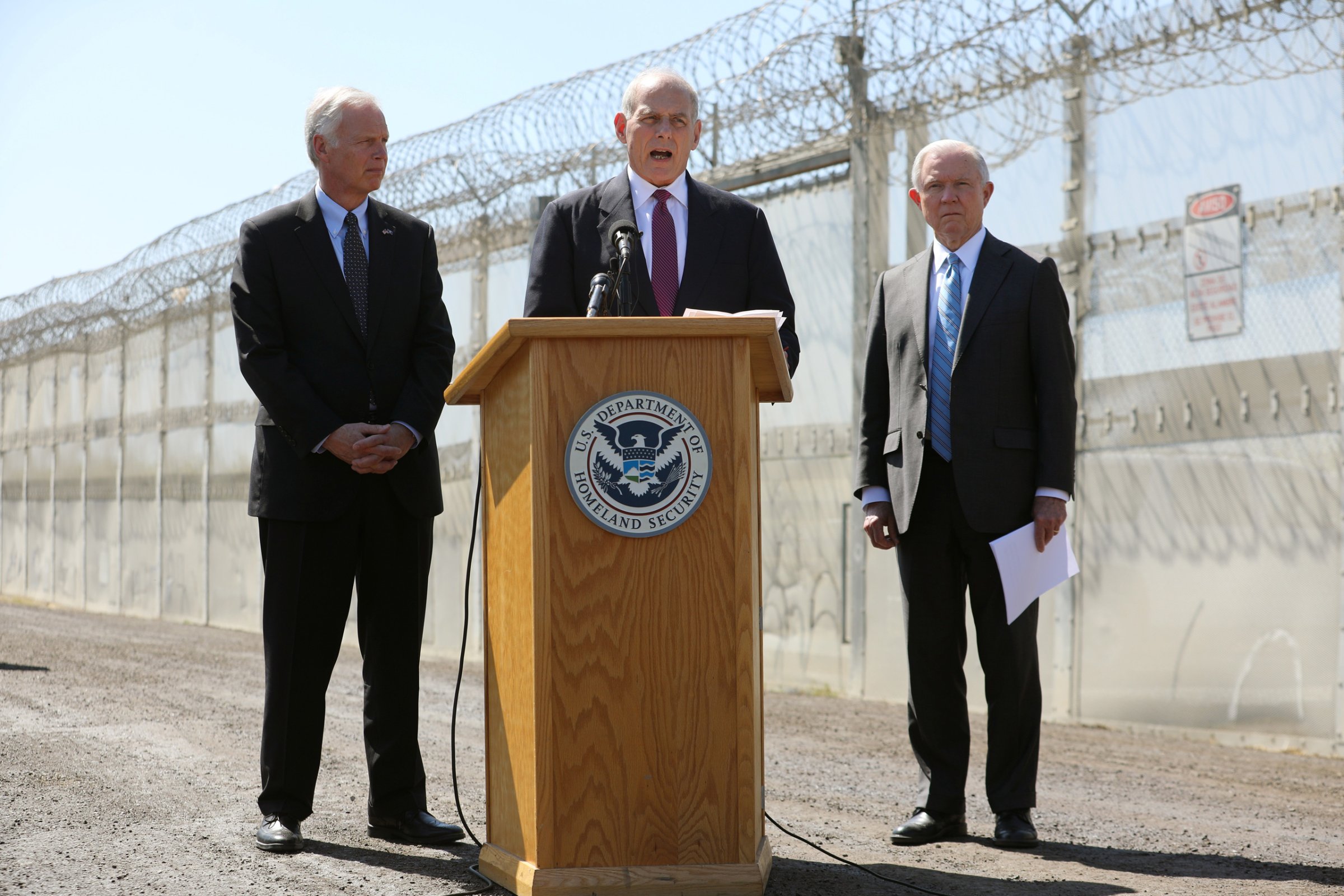
On May 12, two days after President Trump fired FBI Director James Comey, U.S. Attorney General Jeff Sessions dropped a bombshell of his own: Federal prosecutors should pursue the most serious possible charges in all criminal cases, no matter the circumstances. The sweeping 1½-page memo reversed an Obama-era policy that allowed for more leniency, particularly for first-time nonviolent drug offenders, and threw a wrench into bipartisan plans to reform the criminal-justice system.
Sessions said the new directive is both necessary for public safety and the “right and moral thing to do,” citing upticks in violence in some American cities and surges in drug-overdose deaths. “If you are a drug trafficker, we will not look the other way. We will not be willfully blind to your conduct,” Sessions said. “These are not low-level offenders. These are drug dealers, and you drug dealers are going to prison.”
The rigid stance is at odds with the broader political consensus that has emerged in recent years. With research showing that mandatory-minimum sentences and other methods used in the war on drugs tended to disproportionately punish people of color and increase prison populations without reducing crime, officials across the nation have adopted less stringent approaches to drug offenders. Their efforts have been encouraged by a once unlikely criminal-justice-reform coalition led by conservative donors Charles and David Koch and the liberal-leaning American Civil Liberties Union. In a rare act of Washington cooperation, members of Congress from both sides of the aisle have been working on federal sentencing legislation that would reflect the emphasis on treatment over incarceration.
Many of these supporters have been strongly critical of Sessions’ memo. “We should be treating our nation’s drug epidemic for what it is: a public-health crisis, not an excuse to send people to prison and turn a mistake into a tragedy,” Republican Senator Rand Paul of Kentucky wrote in an op-ed for CNN. A Republican colleague, Utah Senator Mike Lee, said, “To be tough on crime, we have to be smart on crime,” in a tweet criticizing the policy.
With Sessions’ memo in effect immediately, the debate over criminal justice will return to Congress. Last year, when he was still a Senator from Alabama, Sessions helped block a sentencing-reform measure. As Attorney General, he can order an about-face for the nation’s prosecutors—-but he can no longer bottle up a bill. Says Jason Pye, public-policy director for FreedomWorks, a Tea Party–aligned group that supports criminal-justice reform: “This is a moment for conservatives in Congress to step up.”
More Must-Reads from TIME
- Breaking Down the 2024 Election Calendar
- How Nayib Bukele’s ‘Iron Fist’ Has Transformed El Salvador
- What if Ultra-Processed Foods Aren’t as Bad as You Think?
- How Ukraine Beat Russia in the Battle of the Black Sea
- Long COVID Looks Different in Kids
- How Project 2025 Would Jeopardize Americans’ Health
- What a $129 Frying Pan Says About America’s Eating Habits
- The 32 Most Anticipated Books of Fall 2024
Contact us at letters@time.com